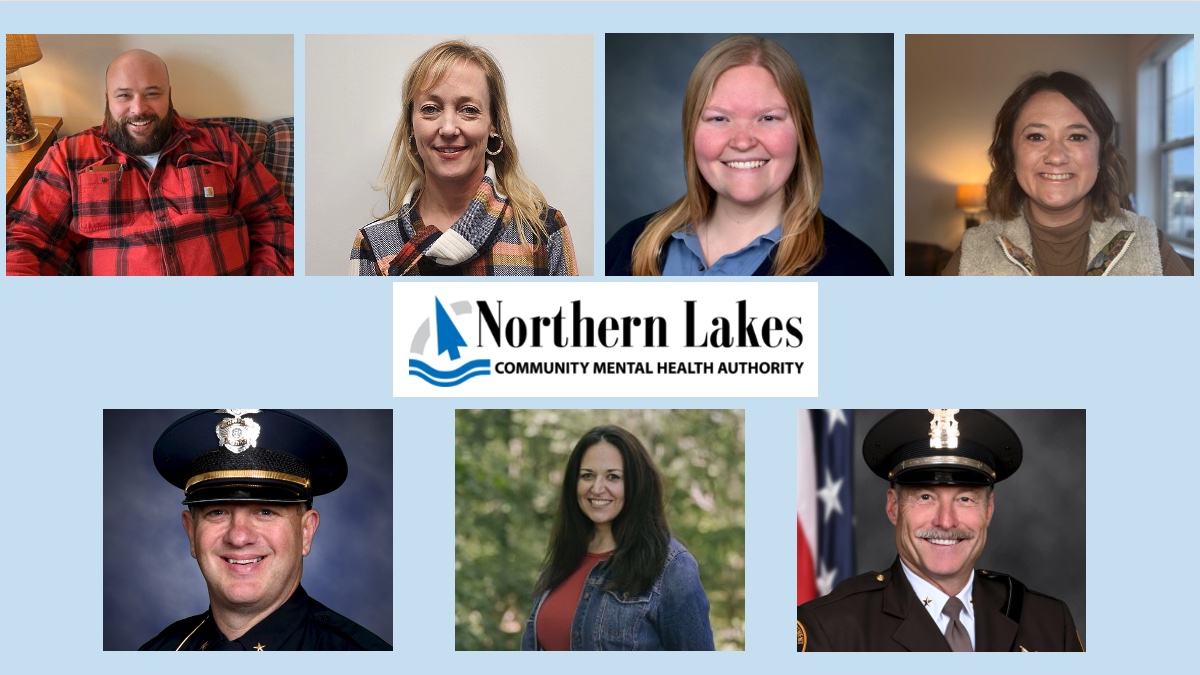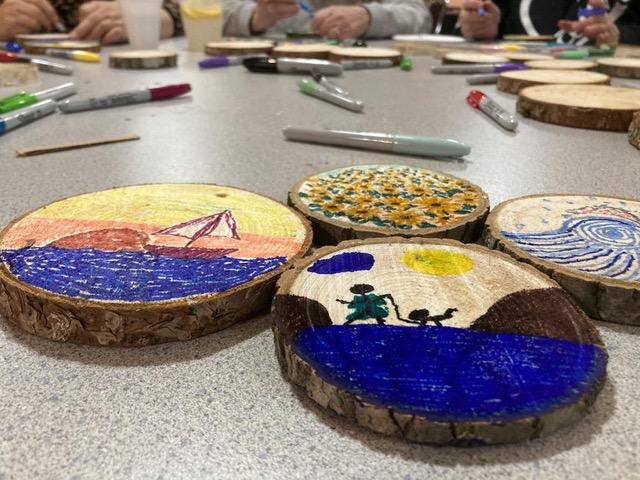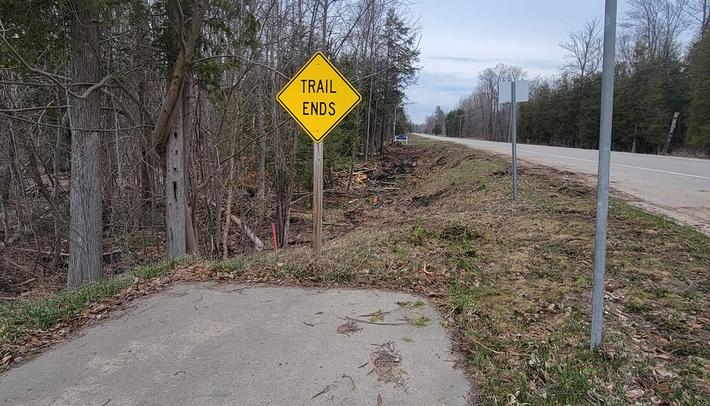
On the Move with Mobile Crisis Care
Helping people (and avoiding tragedy) anywhere in northern Michigan
By Ross Boissoneau | Jan. 27, 2024
A recently developed collaborative program is providing those facing a mental health emergency in Grand Traverse County an option beyond first responders or a trip to the emergency room.
“If someone is in a mental health crisis, they should be talking to a mental health clinician,” says Nancy Stevenson, the COO of Northern Lakes Community Mental Health Authority (NLCMHA) in Grand Traverse and Leelanau Counties.
This mobile mental health crisis program, which went live last May, includes professionals from NLCMHA working alongside the likes of the Grand Traverse County Sheriff’s Department, Addiction Treatment Services (ATS), Traverse City Police Department (TCPD), and other partner organizations. “We all worked together” to bring the program to fruition, Stevenson says.
How It Works
NLCMHA defines their mobile crisis care as “short-term, on the phone or face-to-face services intended to restore an individual’s or family’s functioning level to where it was before the crisis. Mobile mental health crisis response offers adults as well as children and families an opportunity to de-escalate a situation or problem in the least restrictive setting, while also developing strategies to address any future safety concerns.”
Stevenson says the service provides a crucial link to the community. “What was missing was in a crisis, they [those suffering a mental health emergency] would have to come to us. It’s better for us to go,” she says.
The “mobile” in mobile crisis care means that the team comes to you when a crisis hits. Clinical therapist Brad Neuder serves as the program’s community liaison, the point person for the community response to someone’s mental health crisis.
“I triage, determine the level of care” the person needs, he says. “I team up with others in other services: Goodwill Inn, ATS, etc. Our motto is, ‘Put the community back in community mental health.’ We meet the person where they’re at—in the community, in their home, etc. Each crisis is different.”
Neuder says a number of people can request a person be seen by a mental health professional such as himself in the field, including “the individual, a business or property owner, emergency services, or a family member.”
Clinical therapist Lauren Franklin of NLCMHA says people are now less reluctant to address mental health challenges. “There’s been less stigma since COVID,” she says. She says it’s also important to note that a mental health crisis needn’t be a big event. “We respond to anything—thoughts of suicide to behavioral [problems].”
How It’s Going
Sheriff Michael Shea is a big believer in the program. He says in the past, the various organizations had a difficult time working together.
“It was a bureaucratic mess. What I think is really, really amazing is how law enforcement, Northern Lakes, Addiction Treatment Services are coming together and working so closely,” he says. He adds that the joint program allows all the partners to see the whole picture, where previously they might only be aware of that part their organization was directly responsible for.
Shea says he and his officers are well aware that interactions between those having a mental health crisis and police can go off the rails and lead to disaster. “It can turn into tragedy,” he acknowledges. That has led him to ask, “Does law enforcement need to be involved, or is there a better tool?”
Chief Matt Richmond of the Traverse City Police Department agrees with Shea that collaborating with other services makes sense and actually relieves pressure on law enforcement. He says that over his 20 years in the department, the various organizations focused on their individual missions. “Now we see them all come together,” he says.
The group holds monthly meetings to discuss their individual challenges and successes. Each still concentrates on its own area of expertise, but they’re no longer closed off from other organizations and unaware of others’ efforts. “We all have our areas of expertise, but there are no silos,” says Shea.
How It’s Growing
Paula Lipinski, CEO of Addiction Treatment Services, echoes that sentiment. “Living in silos hasn’t been effective,” she notes. “We are all as leaders of agencies acknowledging we need each other. That was the point of hiring Jenn.”
Jenn Holm is a social worker for the TCPD, working as part of the Quick Response Team (QRT) and with the collaborative mobile mental health crisis program. “We partner with 45 agencies,” she says, including Goodwill, Safe Harbor, Traverse Health Clinic, and others. Members of vulnerable populations often face consistent issues, and QRT can assist those facing at least two of three determining factors to persons within the city limits: mental health challenges, substance abuse, and homelessness.
From its inception on Nov. 1, 2022, to Dec. 31 last year, there have been 238 referrals, with 175 of those deemed eligible for the program. Those who were not eligible either did not meet the two of three factors or were outside the city; they were referred to other agencies.
Holm says 130 of the 175 individuals signed up to participate in the program, which offers those in crisis options they might not otherwise know of. “It can be a bridge between the community and the police,” she says, as when someone who might want treatment is reluctant to call law enforcement.
While the QRT is restricted to Traverse City proper, the mobile crisis intervention services reach across Grand Traverse County. Holm and others say the hope is that over time the program’s reach will extend to other areas as well.
How It’s Helping
Neuder says he also makes it a point to practice proactively as well as reactively, visiting homeless encampments, shelters, and riding along with law enforcement, anywhere there may be people in need of emergency mental health services. “I’m a ghost in the office. Between 75 and 80 percent of my work is out in the field,” he says.
Such an approach breeds familiarity, which Stevenson says is vitally important. “Those individuals know Brad,” she says, from his work at the Pines, Safe Harbor, the library, and other places where the unhoused gather. “They trust him.”
The concept of trust also extends to the partner organizations. The more they work together, the more comfortable they get with one another. “It breaks down the stigma of a social worker in law enforcement,” Neuder says. “They don’t always see eye to eye. Now officers feel very comfortable with Jenn as they’ve seen it work.”
That feeling extends to the rest of the mobile mental health crisis network, where the relationship with individuals such as Neuder provides assurance and assistance, not competition. “Brad says anytime, just call me. It allows our officers to make that contact,” says Richmond.
Shea adds the fact Traverse City police and sheriff’s officers can use an iPad to immediately communicate with mental health professionals while on scene is a huge boon. They can ask if the person they’re helping is willing to speak with a mental health professional and instantly talk with one.
“If we can stabilize and de-escalate, it’s a win,” Shea concludes.
Trending

Walking in an Artsy Wonderland
Michigan Legacy Art Park is hosting the “Raindrops” artwork created by Dewey Blocksma and Patricia Innis at th... Read More >>
Seven Takeaways from Local Real Estate Agents for the Spring/Summer Market
The last few years in local real estate have been akin to what one local agent described as the “wild west,” w... Read More >>
Blazing the Boyne City to Charlevoix Trail
We’re getting ever closer to an interconnected northern Michigan thanks to ongoing work on the Boyne City to Charlev... Read More >>


